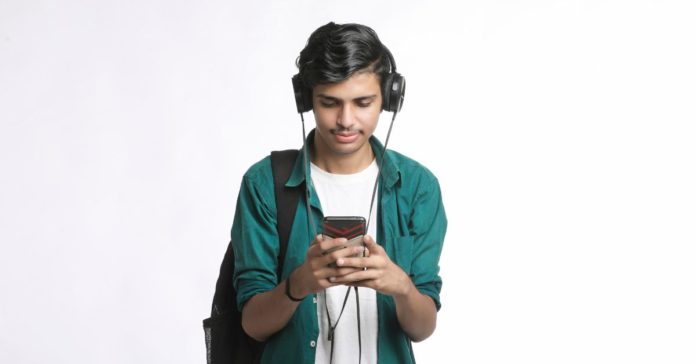Overview
Technology has improved our quality of life and convenience in many ways, but excessive and careless usage of technology also increases health problems in people. The use of headphones is one such technological innovation that is raising the alarm. According to the World Health Organization (WHO), exposure to loud noise puts nearly 1.1 billion young individuals at risk of hearing loss, which could change their quality of life. To prevent temporary or permanent hearing loss, it is essential to use earbuds responsibly.
What do earphones do to your hearing capacity?
Compared to any sound that generally occurs near your ears, in-ear headphones are far louder. Your eardrum vibrates from the sound waves produced by the earbuds, and these vibrational waves penetrate a group of tiny bones and reach the cochlea, a portion of the inner ear.
The cochlea is a fluid-filled chamber in the ear with hair on the outside. The liquid vibrates, and the hair moves when you use headphones. The vibrations intensify as the music becomes louder.
The hair in the cochlea tends to lose its sensitivity to vibrations if you listen to loud noises too frequently or for extended periods of time. Your cells may change form and fold over in response to certain noises. Your ears may need some time to heal. This is the reason for any transient hearing loss you may have experienced after attending a loud concert.
Headphones cause nearly the same harm. However, over a prolonged period, their impact is only gradually perceived. The hair on your cochlea slowly begins to fold if you regularly listen to loud music, leading to hearing loss. The hair often bends so severely that the harm may last a lifetime.
While listening to loud noises through headphones is undoubtedly bad for your hearing, doing so for extended periods at an average volume is also bad for your hearing. Duration is just as crucial as loudness.
How should I use headphones?
If you frequently listen to loud sounds for extended periods, your ears will deteriorate more quickly. Listen to your headphones at a reduced volume as a starting point to reduce your risk of hearing loss. You can achieve this by lowering the volume on the devices you are using to listen to them or on the earphones themselves.
These are a few additional ways you can help safeguard your ears:
- Switch to noise-cancellation headphones: You frequently turn up the volume on your headphones to block out outside noise. Noise-cancelling headphones reduce all background noises and allow you to listen to music at a lower volume without the background noise dominating it.
- Over-ear headphones can help: With over-the-ear headphones, your inner ear is more away from the noise source than earbuds. This spacing, according to scientists, is essential for minimising hearing loss.
- Limiting the amount of time spent wearing headphones: This is another helpful technique for your hearing. If you discover that you spend most of the day wearing headphones, try gradually cutting back. Follow the 60-60 rule, don’t listen to anything louder than 60% of its maximum volume for more than 60 minutes. If you want to stop hearing loss from becoming permanent, avoid using earbuds. The riskiest method of listening to music is earbuds, as it is like putting small speakers in your ears.
- Recognise the symptoms of hearing loss: Being aware of the signs and symptoms of hearing loss is vital to seek help early, thus preventing permanent damage to your hearing. The most typical early warning symptoms of hearing loss are difficulties hearing in a noisy environment and the feeling that you can hear people but not understand what they are saying. Ringing in the ears is frequently a precursor to hearing loss and a symptom of damage to the auditory system.
Is hearing loss due to headphones usage treatable?
As previously stated, listening to loud music while wearing headphones might harm the cells in the ear. The fact that these cells can’t renew themselves is the biggest worry. Once the damage has been done, it cannot be undone, resulting in irreversible hearing loss. But if you spot the signs early, the healthcare provider may be able to figure out a way to treat it.
- Hearing device: A hearing aid can be beneficial if your hearing loss is due to an inner ear injury. You can talk with the healthcare provider about the potential advantages of a hearing aid and get one fitted for you. It will help in amplifying the sounds you hear.
- Implanted cochlea: A cochlear implant may be an option if you have more severe hearing loss and find little relief from traditional hearing aids. A cochlear implant avoids malfunctioning or damaged inner ear structures and stimulates the hearing nerve directly, as opposed to a hearing aid which amplifies sounds and directs them into the ear canal.
Conclusion
You won’t develop hearing loss just because you wear headphones to listen to music for a short duration. But you will be at risk of developing hearing loss if you use earphones for a prolonged period at high volume. Adhering to the above-mentioned rules can help lower the likelihood of developing lifelong hearing loss. Consult your doctor or a skilled specialist immediately if you suspect wearing headphones may have harmed your hearing.


















